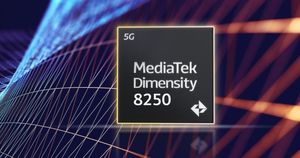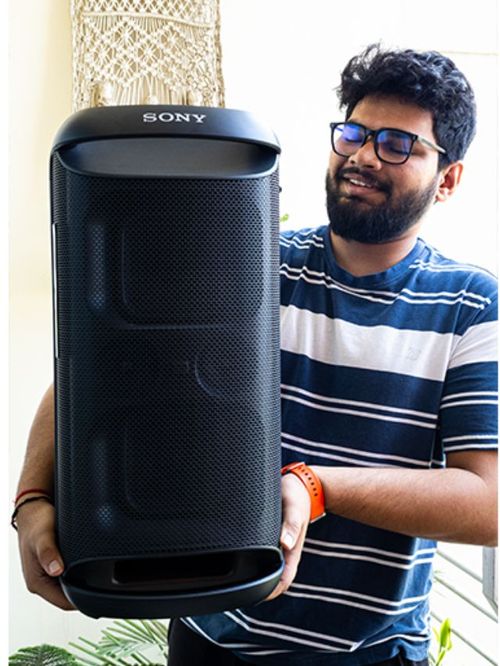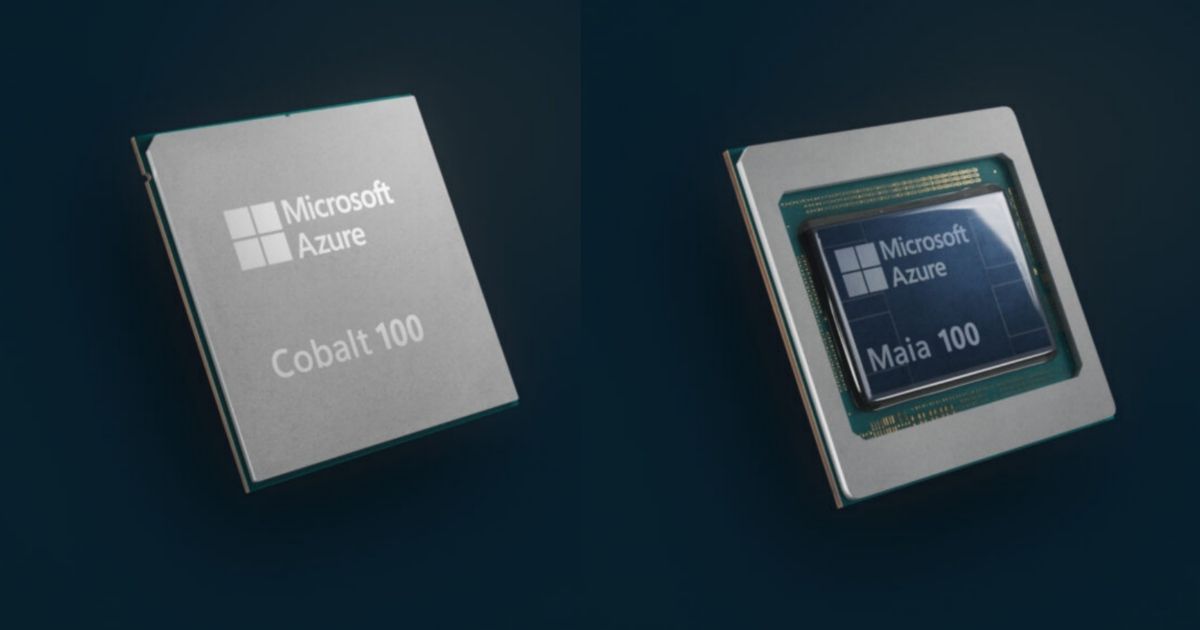
Microsoft has been keen on developing artificial intelligence and its potential applications. The company invested over $10 billion in OpenAI, which is pioneering the use of AI directly to end users through services like ChatGPT.
While Microsoft is better known as a software giant, the brand has now announced its entry into the hardware segment with two new custom processors ‘Auzre Maia 100’ and ‘Cobalt 100’. These new chipsets are specially designed for Microsoft’s server operations and AI language model training.
Microsoft’s New Custom Made Processors
Microsoft says that its new custom chipsets have been engineered to optimize the performance and operating costs of its Azure data centres. The company is planning for a complete overhaul of its cloud infrastructure as the technology market is evolving rapidly with AI.
The Cobalt 100 CPU is a 128-core chipset built on the ARM Neoverse CSS design. The chipset is mainly designed for cloud servers of Microsoft Azure. The company says that the Cobalt 100 is specially curated to achieve the perfect balance between performance and power consumption on every single virtual machine.
The Cobalt chip is currently being tested on workloads related to Microsoft Teams and SQL servers. As per initial testing, the new chipset can deliver 40% faster performance as compared to existing Azure servers. However, Microsoft refused to compare the chip to its Amazon counterparts at the moment.
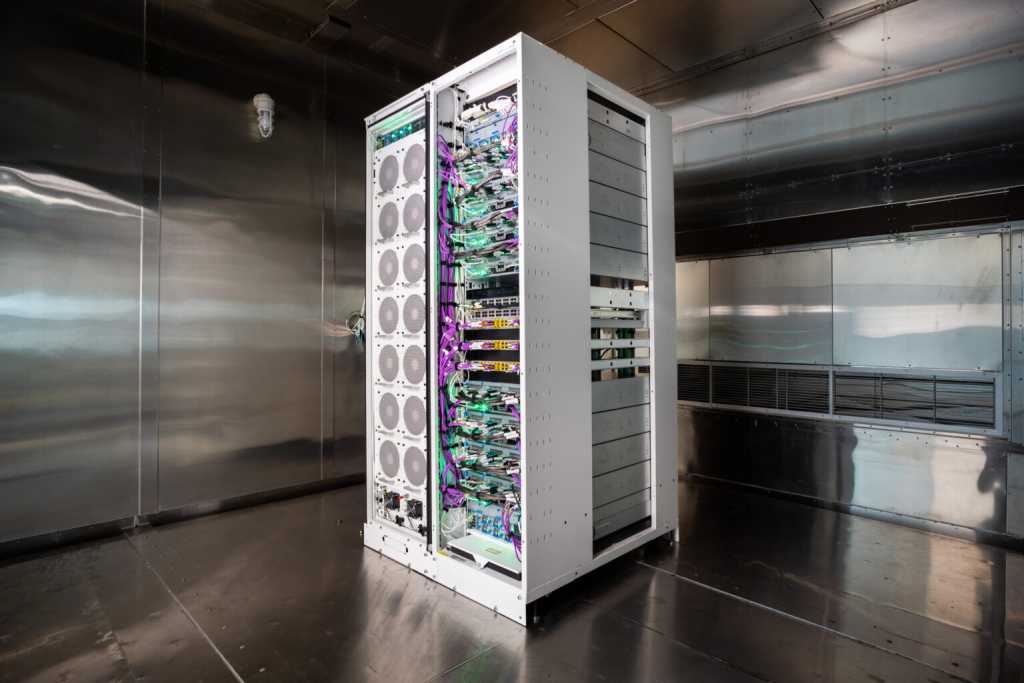
The second chipset is the Maia 100, named after the bright blue star in space. Microsoft is calling this chipset as an AI accelerator which is designed to handle workloads related to AI and training of large language models. The chip will also used to power some operations of OpenAI.
Microsoft added the testing of the Maia chipset is being conducted in collaboration with OpenAI. This will increase the efficiency of training more capable AI models, and make the technology more affordable for end users.
The Maia 100 chipset is fabricated on TSMC’s 5nm architecture and has over 105 billion transistors. It also supports the implementation of sub-8-bit data types and MX data types for faster model training. The chip is also being tested on GPT 3.5 Turbo, Bing AI, and GitHub Copilot.
Microsoft says that the Maia chipset is completely liquid-cooled. The company is using specially designed racks to accommodate the systems based on the new chipset. It will also reduce the overall space occupied by Microsoft’s data centres.
Microsoft Is Not Trying to Compete With Nvidia, AMD, and Intel
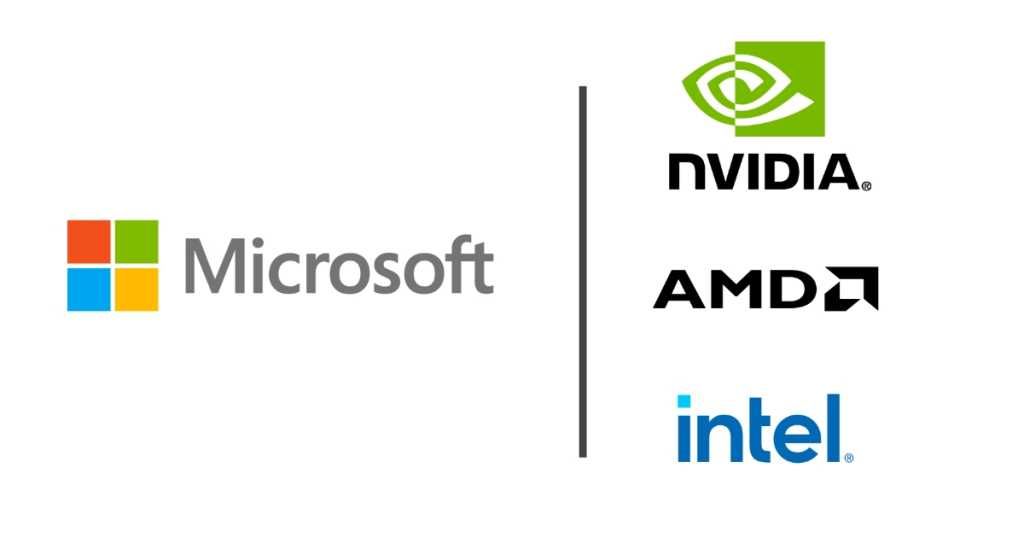
Rani Borkar, VP of Azure Hardware Systems at Mircosoft, said that the company is developing its custom chipsets to complement the hardware needs of the hour. Microsoft will continue to use Intel and AMD resources in its infrastructure for data centres.
Borkar further added the Cobalt and Maia chipsets are a part of its series. The company will continue to develop new chipsets. However, Microsoft did not share its roadmap for its upcoming processors.

